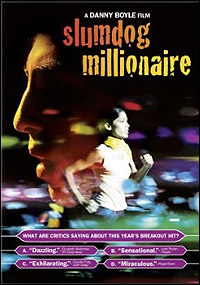
*
It is not uncommon for motion picture adaptations of Broadway plays to suffer in comparison; even moreso when you are dealing with Tony Award-winning plays, Pulitzer Prize-winning plays, or those which managed to pick up one of each. John Patrick Shanley's Doubt, which opened at the Walter Kerr in March 2005 and enjoyed a 15-month run, is one of those doubly-celebrated dramas, an exceptionally well-written play that was blessed with staggeringly good performances from Cherry Jones and Brian F. O'Byrne along with an impeccable production under the direction of Doug Hughes.
Mr. Shanley, who is a director in his spare time, saw fit to bring Doubt [Miramax] to the screen with himself at the helm — which, in this case, seems to have worked magic. The film "Doubt" is not better than the stage version, nor vice versa; they are the same but different. Equally effective, equally enjoyable, and equally successful in the best artistic sense. The screenwriter has rewritten the play and opened it up to the director's specifications; but here the playwright, screenwriter and director are the same. Shanley as director knew what he needed, Shanley as screenwriter knew how to do it, and Shanley as creator of the whole thing was able to re-devise the action and add a dozen-odd characters while protecting the integrity — and the irresistibility — of his one-set, four-character play.
Of course, one need only take the legendary Meryl Streep and some such fine actor as Philip Seymour Hoffman and put them in anything and you are bound to come up with a movie that is, at the least, filled with mesmerizing acting. Scott Rudin, who produced the film version of "Doubt," knows that well enough from past experience. But as one of the producers of the stage version of Doubt, he seems to have taken special interest in Mr. Shanley's progress here. Certainly, you can almost smell the streets of the Bronx, circa 1964, where the piece is set. ("Doubt" was filmed on location, centering on the very same intersection where Shanley attended grade school.)
We loved Cherry Jones as Sister Aloysius, so no comparisons are warranted or necessary. Ms. Streep in this role is as amazing as — well, as Ms. Streep is generally. She delivers her lines under her breath, she hides behind her glasses and habit, she bobs around the edges of the frame like a domineering creature who nevertheless feels caged and wary. (Let it be added that I have a hunch that she patterned her performance on the speech and demeanor of a well-known Broadway inhabitant, the producer of a string of landmark plays over the last 30 years. I might well be wrong, but those line-readings sound mighty familiar.) Mr. Hoffman, too, wipes away memories of the originator of the role. Both Streep and Hoffman seem to be creating the dialogue as they go along. Time and again, they stop in the middle of a sentence, search for just the right phrase, and in doing so give the sentence a different meaning than originally intended. This is particularly uncanny for those of us who remember these same effective and well-composed sentences from the play. The same words that were said on stage; but a closeup of the idea resonating deep within the eyes of the actor changes, enhances and enlightens Mr. Shanley's words. We're talking about doubt here, in "Doubt," and Streep-Hoffman-Shanley constantly reshuffle the layers.
Keeping up with them, in terms of those layers of thought and just plain acting talent, are Amy Adams as Sister James and Viola Davis as Mrs. Miller (known as Mrs. Muller in the play version). Shanley devised his play around warm memories of the Sister James who taught him back in the days when Kennedy was in office, and Ms. Adams — hidden beneath the same habit as Ms. Streep — continually seems to brighten up the camera like a back-lit cloud breaking through the storm. Sister James is Shanley's stand-in for belief, faith and goodness, and Ms. Adams' performance is radiant. As for Ms. Davis, anyone who saw her in August Wilson's King Hedley II (for which she won a Tony Award with a heart-stopping speech in the second act) or Lynn Nottage's Intimate Apparel is well aware of just how fine an actor she is, even though she be severely underused by directors and casting directors. Davis has one scene in "Doubt," opposite Ms. Streep, and the two of them together are quite something.
The DVD has the usual assortment of Bonus Features. Especially worth watching is something with the generic title "Doubt: From Stage to Screen," which turns out to be packed with provocative and interesting ideas from the actors and especially from Mr. Shanley.
 |
"Slumdog" makes a rousing movie. As for the Broadway musical version, stay tuned. Given the inherent difficulties in adapting this material, it would seem to be unlikely. But it is the unlikeliest projects which sometime manage to turn themselves into successful stage musicals.
(Steven Suskin is author of "The Sound of Broadway Music: A Book of Orchestrators and Orchestrations" as well as "Second Act Trouble," "Show Tunes" and the "Opening Night on Broadway" books. He can be reached at [email protected])









